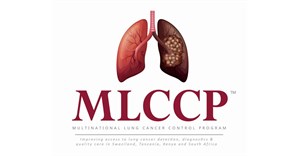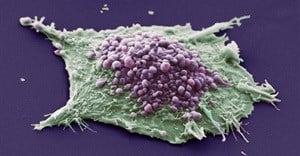SAHPRA extends Keytruda approval to lung and bladder cancer treatment

The regulatory approval follows the review of studies and clinical-trial data that showed that the medicine was safe and effective against additional cancer types. This opens the door to many more cancer patients receiving effective treatment.
Keytruda (Pembrolizumab) is a humanised monoclonal antibody which binds to the programmed cell death-1 (PD-1) receptor and blocks its interaction with ligands PD-L1 and PD-L2. The PD-1 receptor is a negative regulator of T cell activity that has been shown to be involved in the control of T-cell immune responses. Pembrolizumab potentiates T-cell responses, including anti-tumour responses through blockade of PD-1 binding to PD-L1 and PD-L2, which are expressed in antigen presenting cells and may be expressed by tumours or other cells in the tumour environment.
It was approved in 2017 to treat metastatic melanoma and advanced lung cancer. It is now approved for:
- First-line treatment of advanced lung cancer
- First- and second-line treatment of advanced bladder cancer
According to the International Agency for Research on Cancer (IARC), lung cancer caused the deaths of 1,7-million people globally in 2018, while bladder cancer claimed the lives of around 200,000 patients.
In South Africa, more than 100,000 cases of cancer are reported each year, with 57,373 deaths recorded in 2018. While 848 patients lost their lives to bladder cancer in 2018, lung cancer is the deadliest form of the disease, with nearly 8,000 deaths in that year alone.
“South Africa has significant challenges around lung cancer,” said oncologist, Professor Bernardo Leon Rapoport. “With another first-line treatment available for advanced lung cancer, we can look to improve survival rates, which mean a better quality of life for cancer patients and a reduced disease burden on society”.
Such breakthroughs in research, development and approvals in the immuno-oncology space give governments, health systems and physicians the opportunity to help more patients.
“Immunotherapy medicines create new options to treat cancer, which may prolong survival or turn cancer into a manageable, chronic disease,” said oncologist, Dr Devan Moodley. “This approval is welcome news, and we need to continue research in this area, with the aim of expanding the cancer types we can treat”.
















